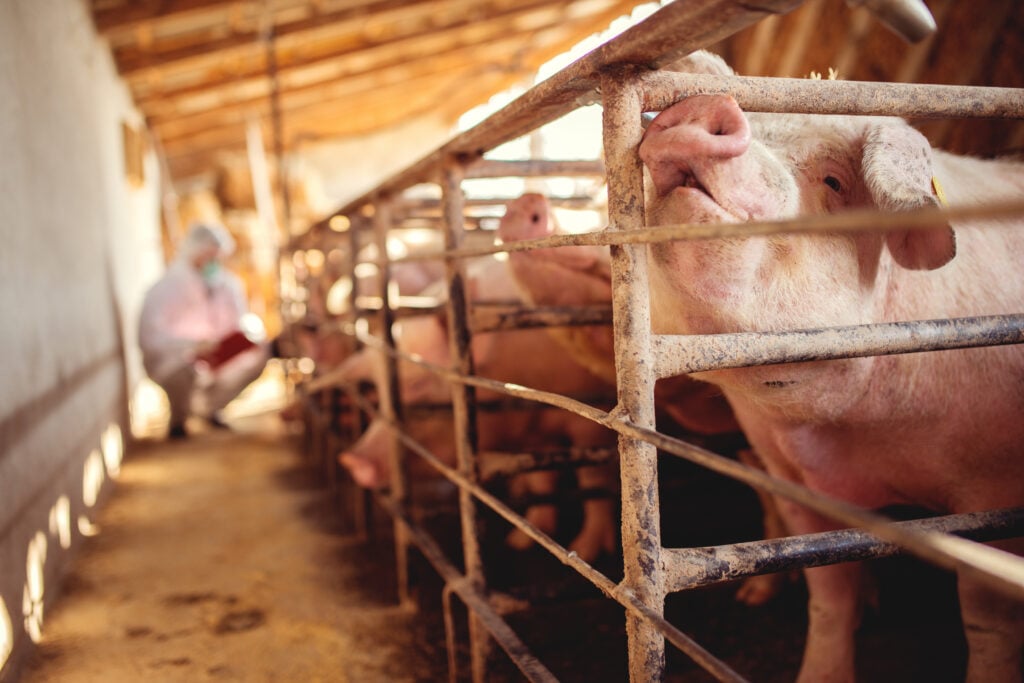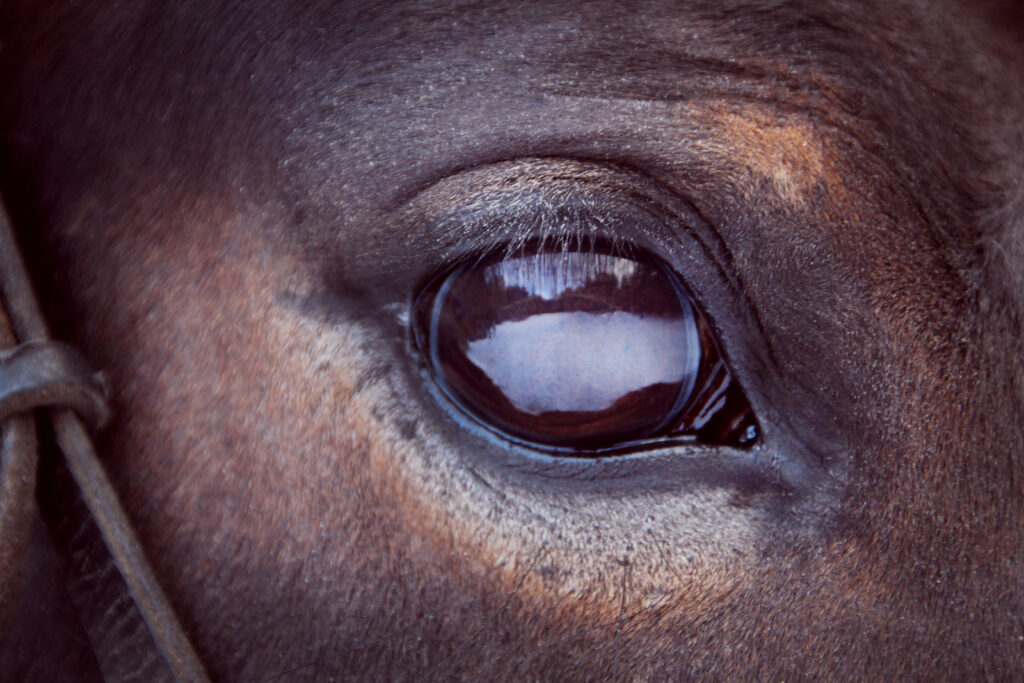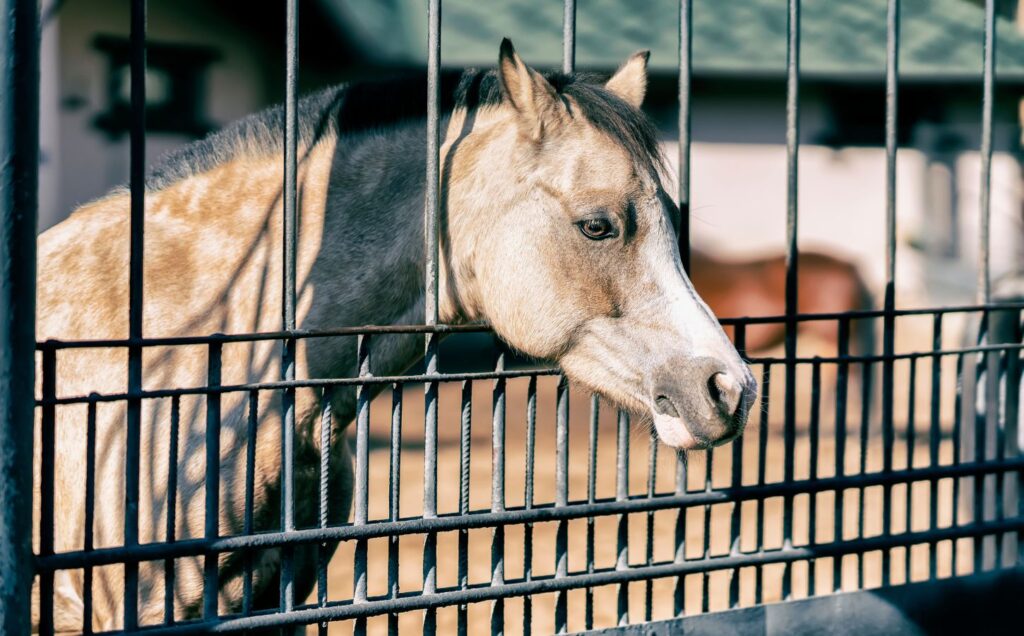Multiple accounts of animal cruelty have been found on farms that extract blood from pregnant horses and sell them to pig farms in Europe.
The Animal Welfare Foundation (AWF) conducted an investigation into South American “blood farms.” These locations are supplying fertility hormones to EU pig breeders.
Pregnant Mare Serum Gonadotropin (PMSG) is a hormone commonly used within industrial pig breeding. It is used to make all captive sows come into heat at the same time, to allow for efficient artificial insemination processes. The hormone also helps to ensure sizable litters, putting the pigs’ health at risk.
The pigs give birth at a predetermined time, allowing the piglets to be sent for fattening together and eventual slaughter. Due to many litters containing more piglets than sows can feed, weak animals are left to die.

What are blood farms?
Blood farms are found throughout the world. Their function is to extract and sell PMSG. It is found in the blood of pregnant horses, with multiple complications arising from the retrieval process. Especially when animal welfare is not a priority.
Investigations conducted by the AWF in 2021 and 2022 found that South American blood farms in Uruguay and Argentina are guilty of multiple counts of animal cruelty. Too much blood is frequently taken from mares, resulting in injury or death of the mares. Also presenting a significant threat to life is the process of subjecting mares to late-term abortions.
“The foals are unwanted, that is why they are aborted. A lot of mares do not survive the late abortion around day 110 of pregnancy,” Sabrina Gurtner, project manager at AWF, told Eurogroup for Animals.
Weak and injured animals were found to be left to die on their own.
Animal cruelty for commercial gain
AWF discovered that up to 10 liters of blood is taken from pregnant horses on South American farms every week. This continues for 12 weeks, until they are forced to abort, and occurs twice a year.
Alongside fellow animal welfare organization Tierschutzbund Zürich, AWF has been reporting on the cruelty engrained in PMSG production since 2015. As a result, most European pharmaceutical companies, which supplied pig breeders, stopped importing the hormone from South America. However, one Argentinian company called Syntex is seeking to reenter the market.

Syntex was one of the companies shown to be engaging in cruel production processes in 2015 and again in 2018. As a result, European pharmaceutical businesses severed ties. Now, Syntex has rebranded its PMSG product and has founded a new company called Syn Vet-Pharma based in Ireland. Approval processes to supply the hormone to the EU again are in progress. So far Ireland, France, Germany, and Spain all having granted permission.
A collective of 14 global animal welfare organizations have come together with Eurogroup for Animals to demand that the EU commission takes action. They seek to secure a full ban on the use of PMSG in animal breeding.
“From today’s perspective, PMSG is a hormone from the ideology of the ’80s. The idea at the time was to ensure food security for the population with cheap pork,” the cohort said in a statement.
“Today, the massive negative effects of factory farming on animal welfare, human health, climate and environment are well known. PMSG is a booster for a misguided agricultural policy. A ban on PMSG would follow the logic of the European Green Deal and its Farm to Fork Strategy.”
Banning supplementation in animal rearing
Earlier this year, Iceland came under fire for playing host to 119 blood farms. The country faces calls from animal rights activists to end the practice which sees more than 5,000 semi-wild horses exploited each year. The European Parliament supported calls for the ban and helped to petition the EU Commission.
The EU has previously banned the routine use of antibiotics to promote faster growth in animals being raised for meat. The ban came into effect in 2006, but has received criticism for its perceived lack of power. It has been reported that many farmers simply changed tack and began referring to their use of antibiotics as “therapeutic” instead.
The European Parliament has now called on the Commission to halt the import and production of PMSG in the EU. However, Gurtner is holding out little hope.
“As is often the case, the will of the EU Parliament fails due to the inaction of the EU Commission”, she said.






